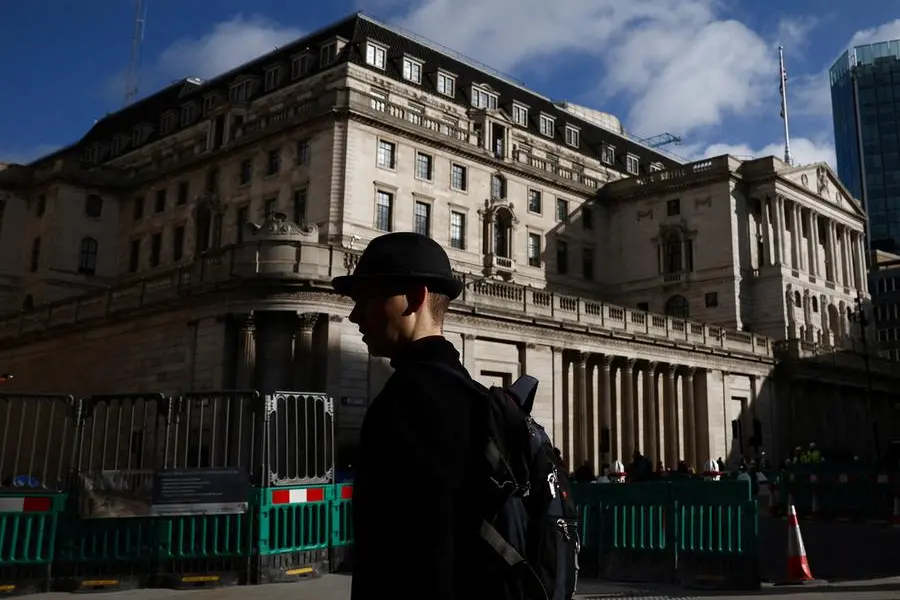PHOTO
LONDON - Short-dated British government bond prices plunged on Tuesday to new 15-year lows as investors leant heavily into bets that the Bank of England will keep on raising interest rates, following unexpectedly strong labour market data.
British bond yields - which move inversely to the price - have soared in response to recent figures that point to entrenched inflation pressure in the economy.
The two-year gilt yield rose to 4.847%, its highest level since August 2008 and surpassing a peak hit during September's market meltdown triggered by the economic agenda of former prime minister Liz Truss, after it was presented in what was dubbed the "mini-budget". As of 1210 GMT, it stood 17 basis points higher on the day at 4.81%.
Official data on Tuesday showed British wage growth soared and employment also jumped in the three months to April, while incoming BoE rate-setter Megan Greene said the BoE would need to lean against signs of inflation persistence.
"Gilts remain vulnerable amid strong inflationary pressures," said Althea Spinozzi, senior fixed income strategist at Saxo Bank. "We see scope for 2-year yields to rise towards 5%, testing a critical level that might provoke volatility across markets."
Investors ramped up expectations for the peak in BoE rates to 5.75% by the year's end from their current level of 4.5%. On Monday, they had priced in a peak of 5.5%, based on the overnight index swap curve.
It now shows a 32% chance that the BoE will raise interest rates by as much as 50 basis points on June 22, up from 17% on Monday.
Swap rates - a key determinant of mortgage borrowing costs - also soared on Tuesday, suggesting there could be more trouble in the home loans market after banks and building societies ramped up lending costs.
Longer-dated gilt yields also rose on Tuesday, but the action was concentrated mostly in short-dated bonds. Benchmark 10-year gilt yields were 5 basis points higher on the day at 4.39%, having earlier hit their highest since May 26.
The gap between 10-year British and German government bond yields has widened on Tuesday above 200 basis points for the first time since the mini-budget.
Excluding the mini-budget period, that difference represented the widest spread since the BoE became operationally independent of the government in 1997.
The sustained narrowing of the spread after 1997 had been viewed by British economic policymakers as a major achievement.
(Editing by David Evans)





















